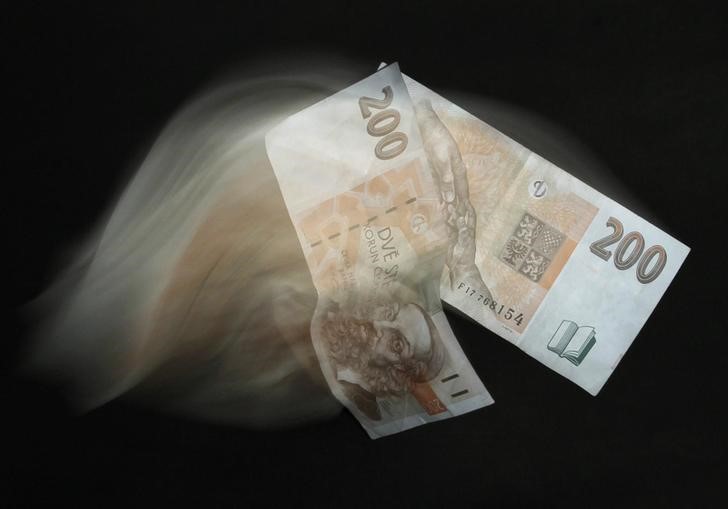By Sandor Peto
BUDAPEST (Reuters) - Central Europe's main currencies are expected to strengthen in the next 12 months on the back of healthy economic growth and expectations for monetary tightening, a Reuters poll of analysts showed in Wednesday.
According to the March 2-6 poll, the Czech crown (EURCZK=) will gain 2.3 percent against the euro in the next 12 months relative to Monday's close, to 24.85, which would be its strongest level since 2012.
Its strengthening is fueled by expectations that the Czech central bank will continue to increase interest rates to fight inflation, analysts said.
The forint (EURHUF=) is expected to firm 2.2 percent to 307.5 by the end of February next year, and the zloty (EURPLN=) 1.2 percent to 4.14.
In past weeks, the Polish and the Hungarian units traded near their weakest levels this year as global markets were gripped by risk aversion due to inflation fears, before a rebound this week.
Unlike its Czech peer, the Polish central bank has not been worried over inflation.
It is expected to keep interest rates on hold at its meeting on Wednesday, and its updated economic forecasts are seen confirming that robust growth is coupled with moderate inflation.
"The... meeting should thus have little impact on the zloty," Erste analysts said in a note, adding though that "the recent acceleration of wage growth should turn into demand pressure sooner or later, pushing the inflation rate up slightly in mid-2018".
The bank is expected to start to lift rates next year.
The Hungarian central bank (NBH) could keep its main rate on hold for years, but may start to withdraw the surplus liquidity it has injected into markets through its swap facilities already later this year, said David Nemeth, analyst at K&H Bank.
Nemeth said the risk was a decline in Hungary's big trade surplus, which buoys the forint, as wages and household consumption surge across the region, adding though that a strong inflow of European Union funds this year help the forint.
Peter Virovacz of ING, who sees the forint approaching 300 versus the euro by February next year, said Hungary's current account could surprise on the positive side as new production capacities step in later this year in the key automotive sector.
"The ECB could start to tighten policy next year, so the NBH is unlikely to ease its own policy further," he said, adding that a forint firming would not bother the bank as long as Hungary's government bond spreads over core markets do not rise.
(For other stories from the global foreign exchange poll:)
(Polling by Sandor Peto; Editing by Angus MacSwan)
